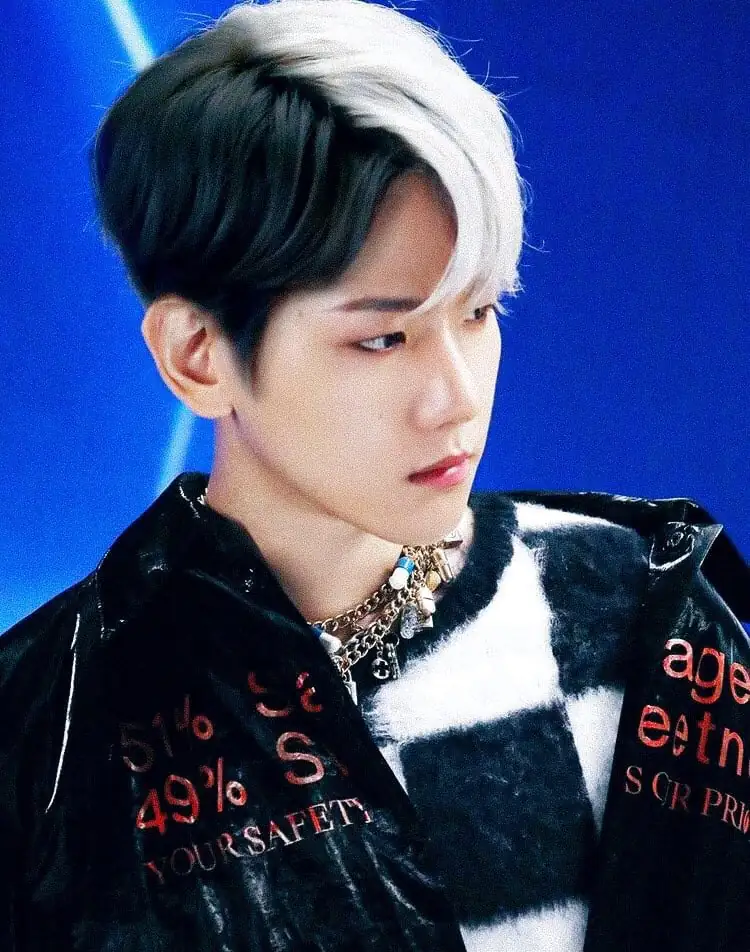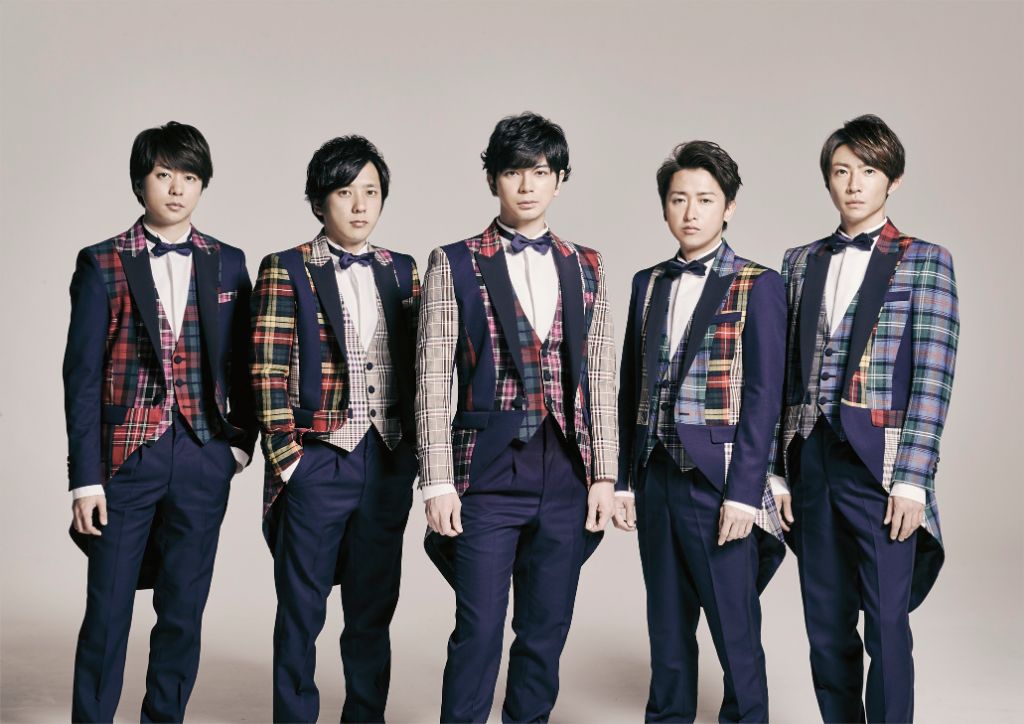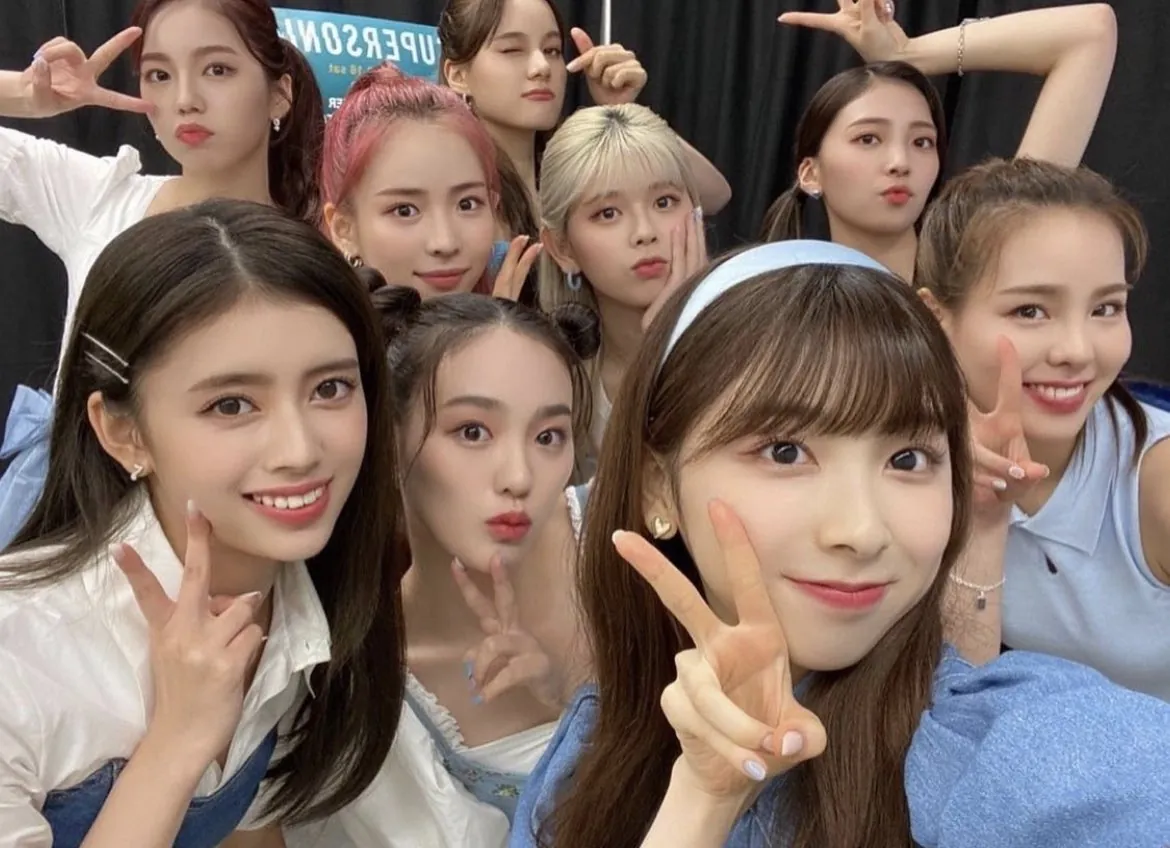Win a Free Trip to Japan!
Experience cherry blossoms and ancient temples
In recent years, Japanese Kpop idols have gained immense popularity, captivating fans across the globe with their unique talents and charisma. As the music industry evolves, these idols redefine what it means to be successful in the Kpop scene. From established artists to promising newcomers, the landscape of popular Japanese Kpop idols showcases a diverse array of talents. This post will explore everything from a comprehensive Japanese Kpop idols list to the latest Japanese Kpop groups that are making headlines. Additionally, we’ll delve into Japanese Kpop idol rankings, highlighting the most influential figures and examining their individual profiles. Join us as we uncover the remarkable impact of Japanese Kpop idols on Kpop culture and the exciting future trends that lie ahead.

Overview of Japanese Kpop Idols in the Industry
The phenomenon of Japanese Kpop idols has transformed the entertainment landscape, integrating the vibrant elements of Japanese pop culture with the dynamic world of Kpop. These artists have become significant players in the global music scene, forging a unique identity that appeals to a diverse fanbase.
Key Highlights
Cultural Fusion: Japanese idols blend various musical styles, seamlessly incorporating traditional Japanese sounds with contemporary Korean pop, creating a unique listening experience.
Incredible Talent: Renowned for their multifunctional skills, many popular Japanese Kpop idols showcase exceptional singing, dancing, and acting abilities, which allow them to excel in various entertainment domains.
Community Engagement: These idols often prioritize their fans, promoting active interaction through social media, fan meetings, and live performances, which strengthens their dedicated fan communities.
Noteworthy Aspects
| Feature | Description |
|---|---|
| Diversity in Groups | Numerous Japanese Kpop groups cater to different interests, styles, and fan demographics. |
| Global Expansion | With Kpop’s global rise, Japanese Kpop idols are also making waves overseas, enhancing cultural exchange. |
| Support for Emerging Talents | Established idols pave the way for new artists, continuously refreshing the industry landscape. |
Japanese Kpop idol rankings reflect their rising stardom, with top performers gaining recognition not only for their music but also for their influence on fashion and trends. This synthesis of Japanese and Korean artistry is reshaping how fans perceive and engage with both cultures, establishing a new era in the entertainment industry. As we delve deeper into this vibrant scene, it is evident that the journey of Japanese Kpop idols is just beginning, promising exciting developments in the future.
Top Japanese Kpop Idols Redefining Popularity
In recent years, the integration of Japanese idols into the Kpop scene has significantly reshaped the industry’s dynamics. Many popular Japanese Kpop idols are capturing the hearts of fans worldwide and redefining what it means to be a star in this competitive environment. Below are some of the standout figures who are leading this trend.
| Idol Name | Group | Debut Year | Notable Achievements |
|---|---|---|---|
| Haruto | ENHYPEN | 2020 | Mnet’s I-LAND winner; versatile rapper |
| Sakura | LE SSERAFIM | 2022 | Former HKT48 member; strong vocal presence |
| Yuta | NCT | 2016 | NCT’s international outreach ambassador |
| Miyeon | (G)I-DLE | 2018 | Multi-talented artist with chart-topping hits |
| Kanata | JO1 | 2020 | Rising star with impressive dance skills |
These Japanese Kpop idols have made huge strides and often feature in the Japanese Kpop idol rankings due to their talent and charisma. From their debut in Japanese Kpop groups to making headlines, each has contributed uniquely to the evolving landscape of Kpop.
Key Re-defining Factors:
- Versatile Skills: Many of these idols are not only talented singers but also skilled dancers and entertainers.
- Cultural Influence: They bring diverse elements of Japanese culture into their performances, enriching the Kpop experience for fans.
- Strong Fan Engagement: By utilizing social media platforms, these idols maintain strong connections with their supporters, helping to strengthen their popularity.
In conclusion, the rise of Japanese Kpop idols is undeniably changing the industry. Their impact continues to grow, ensuring they’re here to stay and remain influential figures in the global music scene.
Rising Stars: Emerging Japanese Kpop Idols
In the vibrant landscape of Kpop, Japanese idols are making a significant mark, and many are rapidly rising to fame. These Japanese Kpop idols are not only showcasing their talent but also introducing unique perspectives that enrich the genre.
Spotlight on Promising Talents
A closer look reveals several standout stars who merit attention. These idols are known for their exceptional skills and have captured the hearts of fans worldwide. Here’s a glimpse of some of the most exciting newcomers in this burgeoning scene:
- Nanami from Group A: Known for her captivating voice and dynamic stage presence, she perfectly embodies the spirit of Kpop.
- Riku from Group B: A multifaceted performer, Riku excels not only in singing but also in choreography, quickly climbing the Japanese Kpop idol rankings.
- Akira from Group C: With her striking visuals and charismatic charm, Akira is rapidly garnering a loyal fanbase.
Comparison of Emerging Idols
| Idol Name | Group | Main Talent | Notable Achievements |
|---|---|---|---|
| Nanami | Group A | Vocals & Dance | Debuted with a chart-topping single |
| Riku | Group B | Dance & Performance | Featured in major Kpop festivals |
| Akira | Group C | Visuals & Acting | Won “Rookie of the Year” in 2023 |
As fans eagerly follow these rising stars, it’s evident that popular Japanese Kpop idols are reshaping expectations and standards within the industry. Each artist brings a unique flair, contributing to a rich tapestry of talent that continues to evolve. As these idols shine on stage and in the hearts of fans, their profiles are bound to rise, making them names to watch for in the coming years.
Popular Japanese Kpop Groups You Should Know
The allure of idols has captured fans across the globe, especially when it comes to the burgeoning world of Japanese Kpop groups. These groups have not only made an impact with their catchy music and stunning visuals but have also blended cultural elements from both Japan and Korea. Here’s a look at some of the most popular groups that are taking the industry by storm:
| Group Name | Debut Year | Notable Hits | Unique Selling Point |
|---|---|---|---|
| Arashi | 1999 | “Love so sweet”, “One Love” | Strong fan engagement and diverse music style |
| EXILE | 2001 | “Choo Choo Train”, “Rising” | Fusion of dance and vocal talents |
| Hey! Say! JUMP | 2007 | “Ultra Music Power” | Youthful energy and powerful performances |
| NiziU | 2020 | “Step and a step” | Pioneering international collaborations |
| JO1 | 2020 | “SORA” | Diverse members with individual skills |
These groups represent just a fraction of the vibrant Japanese Kpop idols list, yet they set themselves apart in various ways. From Arashi’s long-standing legacy to the fresh vibe brought by NiziU and JO1, each brings their unique flavor to the Japanese Kpop idol rankings.
The rise of these groups demonstrates the seamless integration of influences across the Asian music scene. With a rapidly evolving genre, the future looks bright for Japanese Kpop idols, as they continue to redefine the boundaries of the entertainment industry. Keep an eye on these groups as they forge ahead and make significant waves both locally and internationally.
Profiles of the Most Influential Japanese Kpop Idols
In the dynamic world of Kpop, Japanese idols have played a crucial role in shaping the genre’s landscape. From chart-topping hits to viral dance challenges, these talents have garnered immense popularity and recognition. Here’s a look at some of the most influential figures within the Japanese Kpop idols list.
Key Profiles
| Idol Name | Group/Association | Notable Achievements | Influence |
|---|---|---|---|
| Haruka Takemura | A-Aware | Debuted with record-breaking album sales | Inspired many with her versatile talents |
| Kenji Tanaka | V-Rising | Major awards in Best New Artist | Known for bringing Japanese culture to forefront |
| Aiko Matsumoto | D!ROSE | First Japanese to perform at Kcon | A trailblazer for Japanese influences in Kpop |
| Sora Yoshida | X-Dreams | Collaborated with top Kpop artists | Impacted fashion and performance styles |
| Riku Asakura | Blaze | Social media sensation | Fostered a vibrant fan community |
Highlights of Influential Idols
- Cultural Impact: Japanese idols have broadened the appeal of Kpop, making it more inclusive and diverse.
- Diverse Talents: Many idols excel in various fields, including acting, modeling, and singing, thus redefining industry standards.
- Fan Engagement: These idols actively engage with their communities, helping to cultivate devoted fanbases.
As seen from the Japanese Kpop idol rankings, the influence and popularity of these artists continue to grow. Their commitment to their craft not only impacts the music industry but also promotes cultural exchange between Japan and Korea, paving the way for future collaborations.
Japanese Kpop Idol Rankings: Who’s on Top?
The Japanese Kpop scene has seen an explosive growth in talent and popularity, where fans clamor to know which japanese kpop idols are rising to the top. Competition is fierce, but certain individuals and groups consistently stand out. Here’s a look at the most current rankings reflecting the popularity and influence of japanese kpop idols.
Top Idol Rankings Snapshot
| Rank | Idol Name | Group | Notable Achievements |
|---|---|---|---|
| 1 | Yuuto | J-Beat | Awarded Best New Idol 2023 |
| 2 | Aiko | StarForce | Hits topping charts in Japan |
| 3 | Riku | Dreamers | Best Vocal Performance 2023 |
| 4 | Haruto | NextGen | Sold-out concerts nationwide |
| 5 | Sakura | IdolAura | Multi-genre collaborations |
Influential Factors in Rankings
Several elements contribute to these japanese kpop idol rankings:
- Social Media Presence: Active engagement on platforms like Instagram and TikTok skyrockets their fandom.
- Publications and Awards: Recognized by prestigious entertainment awards, idols gain credibility and support.
- Fan Interaction: Consistent interaction with fans, through live streams and fan meets, increases overall popularity.
“I truly believe that the dedication and passion of these japanese kpop idols significantly steer their success in the competitive world of Kpop,” notes a well-known critic.
Thus, the rankings not only reflect musical prowess but also the connection these idols forge with their fans, reinforcing their status in the industry.
Stay tuned for updates, as emerging talents will always shape the future landscape of japanese kpop groups and influence the global market!
The Impact of Japanese Idols on Kpop Culture
The influence of Japanese idols on the Kpop culture landscape cannot be overstated. These talented individuals have reshaped the industry, bringing unique styles and vibrant aesthetics that have captivated audiences worldwide. Here are some key impacts highlighted below:
Key Impacts of Japanese Idols on Kpop Culture:
| Impact Area | Description |
|---|---|
| Cultural Fusion | Japanese Kpop idols blend traditional Japanese elements with modern Kpop, creating a distinctive sound and look. |
| Fashion Trends | Unique fashion styles from Japanese Kpop groups often set new trends within Kpop, inspiring fans and fellow artists. |
| Collaborations | Frequent collaborations between popular Japanese Kpop idols and Korean groups enhance diversity and marketability. |
| Fan Engagement | Intense fan loyalty for Japanese Kpop idol profiles fosters a unified community, bridging cultural divides. |
| Global Expansion | The presence of Japanese Kpop idols in the industry aids in the global reach of Kpop, drawing in fans from different backgrounds. |
Conclusion
The rising popularity of Japanese Kpop idols showcases their powerful impact on Kpop culture. Their contributions not only add to the richness of the genre but also pave the way for future collaborations and innovations. As these talented idols continue to thrive, they will undeniably play a crucial role in shaping the evolving narrative of global music culture. The Japanese Kpop idol rankings serve as a testament to their enduring influence, making it essential to celebrate their efforts within the dynamic realm of Kpop.
Collaboration Highlights featuring Japanese Kpop Idols
Collaborations in the Kpop industry have become increasingly popular, and Japanese idols are playing a significant role in redefining these partnerships. The inclusion of Japanese Kpop idols in various projects elevates the creativity and cultural exchange within the music genre. Here are some notable collaborations that showcased the talents of popular Japanese Kpop idols:
Noteworthy Collaborations
| Collaboration | Artists Involved | Details |
|---|---|---|
| “Stay Together” | EXO & Hoshino Gen | A heartfelt ballad blending Korean and Japanese pop styles. |
| “Love to Hate Me” Remix | ITZY & Taka from ONE OK ROCK | A dynamic anthem emphasizing empowerment and fun. |
| “Dynamite (Japanese Version)” | BTS & Fujiwara Satoshi | Melding worldwide recognition with a nostalgic Japanese twist. |
| “Flame” | NiziU & SEVENTEEN | A vibrant track showcasing both groups’ choreographic prowess. |
Impact of Collaborations
- Cultural Fusion: These collaborations break down barriers between Kpop and Japanese idol music, promoting a rich cultural exchange.
- Increased Popularity: Featuring Japanese Kpop idols elevates the global popularity of their respective groups and brings new fans into their spheres.
- Innovative Sound: Collaborations often lead to fresh sounds, blending genres and styles that resonate with diverse audiences.
In summary, the integration of Japanese Kpop idols into impactful collaborative projects enhances not only their visibility but also contributes to a more connected and diverse Kpop landscape. Fans eagerly anticipate more such creative interactions that bridge cultural distinctions and showcase the unique talents within the Japanese Kpop idols list.
Fanbase Dynamics of Japanese Kpop Idols
The fanbase dynamics surrounding Japanese idols have evolved dramatically over the years, creating a unique and vibrant ecosystem within the Japanese Kpop idols sphere. As these artists rise in popularity, understanding their fan culture becomes crucial.
Passionate Communities
- Online Presence: The digital era has significantly impacted Japanese Kpop groups, allowing fans from around the globe to connect through various platforms. Social media like Twitter, Instagram, and TikTok play key roles in fandom interactions.
- Fandom Events: From fan meets to online streaming parties, fans engage wholeheartedly. This fosters a sense of community and strengthens the bond between idols and their followers.
Comparative Analysis of Fan Engagement
| Aspect | Japanese Kpop Idols | Other Kpop Idols |
|---|---|---|
| Fan Meet Frequencies | Regular virtual events | Often limited in-person events |
| Fan Club Exclusivity | Special benefits in merchandise | Group-wide benefits |
| Influence on Music | High, shaping genre trends | Varied impact |
Cultural Impact
“The passion and dedication displayed by fans of popular Japanese Kpop idols not only uplift the artists but also create a cultural tapestry that reflects their influences and values.” This sentiment emphasizes how the fanbase supports idols through various challenges, demonstrating fierce loyalty and dedication.
Building Relationships
- Idol Interactions: Through live Q&A sessions, fans create personal connections with their idols, enhancing loyalty and engagement.
- Fan Projects: Many fans organize events, fund projects, or participate in charity works under their idol’s name, promoting a strong sense of community responsibility.
In conclusion, the fanbase dynamics of Japanese Kpop idols exemplify a blend of passion, community involvement, and cultural exchange, making these artists stand out in the competitive Kpop landscape. As they continue to make waves, these dynamics will undoubtedly evolve further, fostering an even richer tapestry of fan engagement.
Future Trends for Japanese Kpop Idols
As the Kpop industry continues to evolve, Japanese idols are at the forefront of emerging trends, shaping the future landscape. The fusion of culture, music, and visual artistry among popular Japanese Kpop idols brings exciting shifts in the industry. Here’s a look at some anticipated trends:
| Trend | Description |
|---|---|
| Cross-Cultural Collaborations | Increased partnerships between Kpop and Japanese entertainment industries, expanding global reach. |
| Diverse Genres | A notable rise in genre experimentation, including indie, electronic, and urban styles. |
| Social Media Engagement | Enhanced fan interaction via platforms like TikTok and Instagram, allowing for real-time feedback and promotion. |
| Sustainability Efforts | A focus on eco-friendly practices in music production and merchandise, resonating with environmentally conscious fans. |
| Global Fan Events | Increase in offline events worldwide, allowing international fans to connect with Japanese Kpop groups in-person. |
| Digital Releases | A shift towards digital formats over physical, driven by consumer preferences and global pandemic effects. |
Future-Forward
The Japanese Kpop idols list is likely to showcase artists that embrace these trends, pushing the boundaries of creativity and audience engagement. These idols not only drive their careers but also contribute to the cultural dialogue around performance art in Kpop. With anticipated changes, collaborations, and rising artists, the future looks bright for the Japanese Kpop idol rankings and their impact on global music culture.
As the landscape grows, we can expect even more innovative performances, captivating Japanese Kpop idol profiles, and broader acceptance of these performers in the global music scene. Keep an eye on these developments to see how they reshape the perception and success of Japanese idols in the coming years.
Frequently Asked Questions
Who are the top Japanese Kpop idols currently active in the industry?
The top Japanese Kpop idols currently making waves in the industry include renowned figures such as Lisa from BLACKPINK, who is known for her stunning dance skills and unique charisma, and Suga from BTS, who has made significant contributions not only as a rapper but also as a skilled music producer. Other notable idols include NiziU’s Mako, who has captured audiences with her vocal talent, and TOMO from ENHYPEN, representing the new generation and breaking barriers as part of a globally recognized group.
What impact are Japanese Kpop idols having on the Korean music scene?
Japanese Kpop idols are having a significant impact on the Korean music scene by bridging cultural gaps and bringing unique aesthetics to their groups. Their involvement introduces diverse musical styles, fashion trends, and influences that resonate with both Korean and international fans. Additionally, these idols often contribute to the songwriting and production processes, enriching the industry with their creative flair and helping to expand the reach of Kpop globally, showcasing the universal appeal of the genre.
How do Japanese idols train to become Kpop stars?
Japanese idols often undergo rigorous training to become Kpop stars, similar to their Korean counterparts. This training can last several years, focusing on various skills such as singing, dancing, language acquisition, and performance techniques. They may start in trainee programs run by entertainment companies, where they receive professional coaching in vocal techniques and choreography. This intense preparation equips them with the necessary skills to perform on international stages, ensuring they can meet the high standards expected in the Kpop industry.
Are there specific challenges faced by Japanese Kpop idols in the industry?
Yes, Japanese Kpop idols often face unique challenges within the industry, including cultural expectations and the pressure to adapt swiftly to the fast-paced Kpop environment. They may encounter linguistic barriers, teamwork dynamics, and the need to navigate between Japanese and Korean cultures. Additionally, the competition is fierce, with numerous talented artists vying for attention, which can be overwhelming. Despite these challenges, many idols find strength in their diverse backgrounds and often use their experiences to connect with fans on a deeper level.





